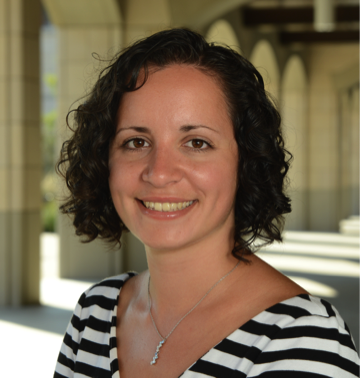Colloquia & Guest Speakers
Color Center Quantum Nanophotonics
Dr. Marina Radulaski, Stanford University
Monday, January 22, 2018
3:30 p.m.
Goergen 101

Abstract:
Beyond the year 2030, over a decade after the End of Moore’s Law, the computing and communication technologies supporting the Big Data and the Internet of Things will be based on a completely new generation of devices. The Quantum Technologies are the forerunning solution to this challenge offering the exponential reduction in data storage using quantum bits (qubits), the exponential speedup in algorithmic processing time, and the cryptographic schemes protected from eavesdropping. The Quantum Internet, currently investigated by both academia and industry, aims to connect the local quantum memory-based nodes using fiber and satellite links to provide secure communication. A scalable implementation of this system relies on identical long-lived quantum bits with an efficient optical interface. Color centers are exceptionally well-positioned optically addressable solid-state qubits for integration in quantum computing and communication. What sets them apart from other implementations, such as superconducting circuits and quantum dots, are the long spin-coherence times, the optical spin-readout, high emission homogeneity in an ensemble, and the proposed entangling schemes.
I will present the progress in developing elements of the Quantum Internet by integrating silicon carbide and diamond color centers into scalable photonic platforms. Our research utilizes novel nanofabrication techniques, quantum and electromagnetic modeling, and confocal spectroscopy to tailor interaction between light and matter. Our results include a scalable array of room-temperature qubits in silicon carbide, high Purcell enhancement of diamond quantum emitters, and a model of a new quantum light-generating mechanism called the subradiant photon blockade.
Bio:
Marina Radulaski is a Nano- and Quantum Science and Engineering Postdoctoral Fellow at Stanford University’s Ginzton Laboratory where she investigates quantum optics and scalable solid-state photonics. She obtained a PhD in Applied Physics from Stanford University under the supervision of Prof. Jelena Vuckovic, a BSc/MSc in Physics from the University of Belgrade, Serbia, and a BSc/MSc in Computer Science from the Union University, Serbia. Marina was selected among the Rising Stars in EECS in 2017, Stanford Graduate Fellows 2012-2014, Scientific American’s “30-Under-30 Up and Coming Physicists” in 2012, and was the Stanford Applied Physics Honorary Commencement Speaker in 2016. She has performed quantum and solid state physics research internationally at the Lawrence Berkeley National Lab, Hewlett-Packard Labs, Oxford University, the Institute for Quantum Optics and Quantum Information in Vienna, Helmholtz Center Berlin, the Institute of Physics of the Polish Academy of Science, and the Institute of Physics Belgrade. In addition to research, Marina enjoys building communities and promoting science through podcasts, videos and outreach events.
Location: Goergen 101
Refreshments will be served.
